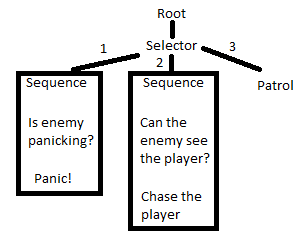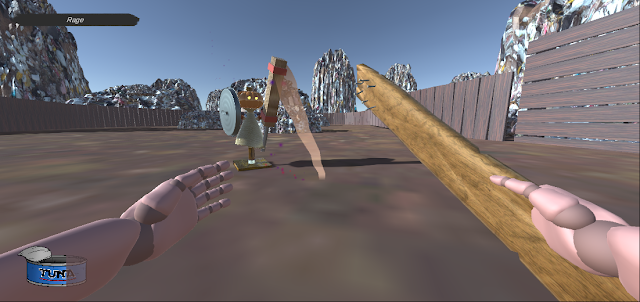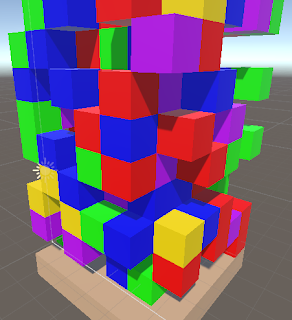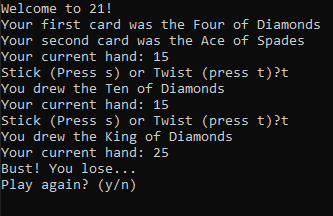Minigame Monday: Covert Behaviour

Covert behaviour: The concept: I've been doing some studies into behaviour trees in Unity for one of my personal projects, so I figured I'd experiment with the framework I'd created (using this tutorial as a guide (I did notice that the GetData and ClearData functions seem to doing unneeded work - they call the parent function, which then calls its parent function and so on recursivly, however they also loop upwards individually in the original function, so it seems like the functions might be being called multiple times on nodes close to the root. I rewrote the functions for now, and I'll look into it more as I use data in the BT. (P.S sorry for the nested brackets, but I guess I am an programmer :P))). I decided to make a stealth game, where enemy behaviour was controlled by a behaviour tree. Enemies would patrol, and charge at the player if the player crossed their line of sight. On top of that, I added a panic mechanic; if the player reached certain spots, all th...




